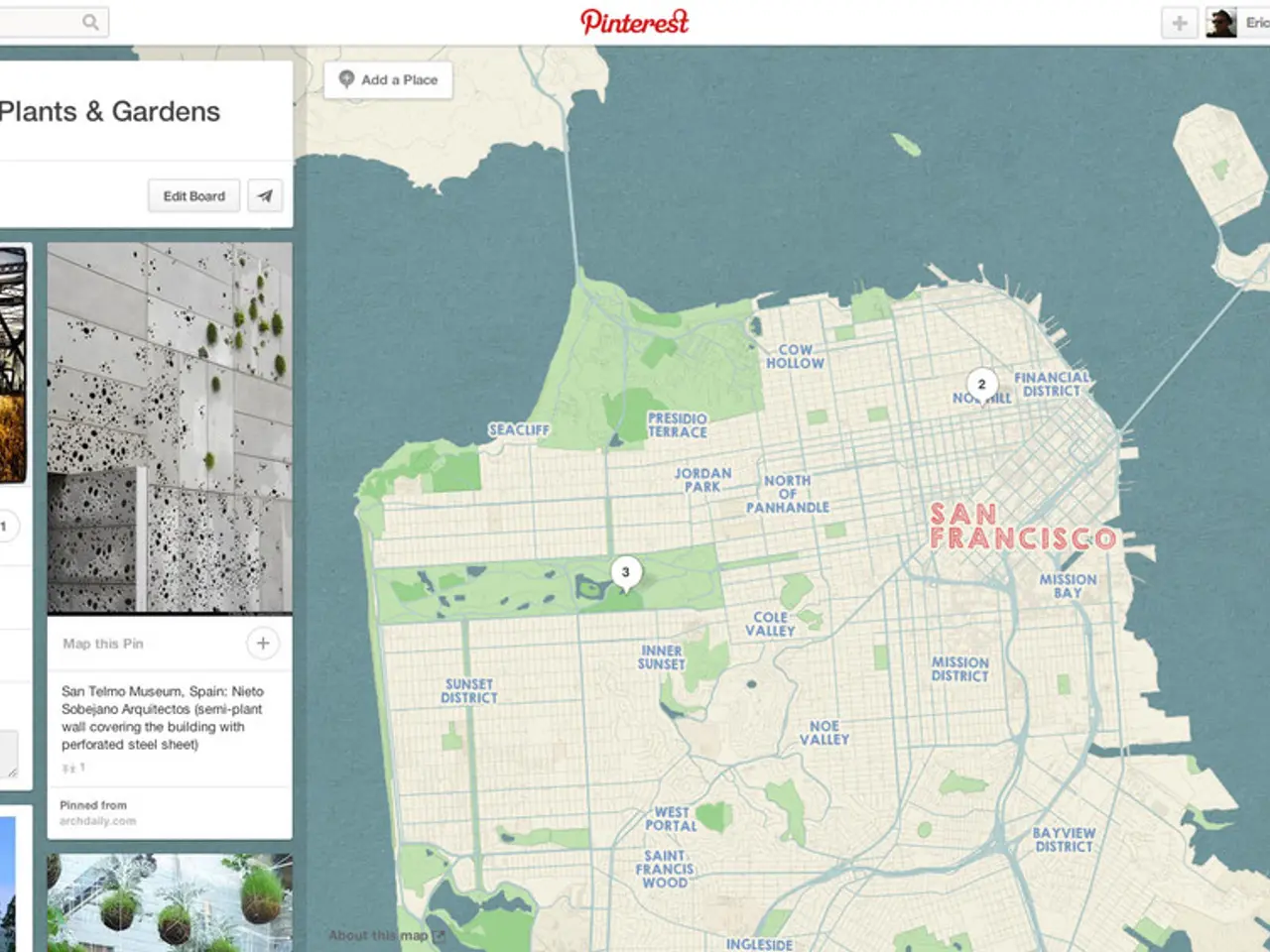Geographical Influence on Intelligence: Exploring the Psychological Effects of Location
In the intricate dance between our environment and our minds, geography plays a pivotal role. The physical and cultural landscapes we inhabit shape cognitive development in various ways, from fostering resilience to enhancing creativity.
Desert or harsh climates, for instance, often cultivate resilience and minimalism. The stark environment demands adaptation, and this minimalism extends to cognitive processes, shaping a keen observational skill and situational awareness.
On the other hand, island cultures may develop a high spatial awareness and navigation skills, along with an emphasis on ecological intelligence. This is a testament to the influence of geography on cognitive development, as the physical environment shapes the way we learn and adapt.
Urban environments, with their bustling streets and towering buildings, train the brain in multitasking, pattern recognition, and cognitive resilience. However, they also present challenges. Air pollution in urban industrial zones is linked to cognitive decline, reduced executive function, and developmental delays in children. High levels of noise and artificial light disrupt sleep cycles and impair memory consolidation, contributing to a fractured attention span and sensory overload.
Conversely, rural or natural landscapes are associated with enhanced attention span, creative problem-solving, and lower baseline stress. Green space exposure restores focus and reduces stress hormones, providing a cognitive boost in these settings.
Mountain regions often foster tight-knit communities and problem-solving rooted in resourcefulness and long-term planning. The dramatic seasonal shifts may even foster a mental rhythm that enhances executive functioning.
Our cognitive performance drops as temperatures rise above 80°F (27°C). Excessive heat can impair attention and memory, making cooler climates more conducive to cognitive tasks.
Long-term exposure to fine particulate matter (PM2.5) can lead to inflammation that affects memory and mood. Regions prone to natural disasters or conflict can cultivate a constant state of vigilance, redirecting mental energy toward survival rather than long-term planning or abstract thinking.
Interestingly, people who have lived in multiple environments tend to score higher on measures of cognitive flexibility and creativity. Exposure to different cultures, landscapes, and ways of life expands the brain's mental toolkit, making us more adaptable and innovative.
In some cases, certain substances can help mitigate the challenges posed by our environments. For example, L-theanine promotes calm focus in noisy or chaotic settings.
In summary, geography shapes cognitive development indirectly by determining the physical, educational, and cultural environments that support or constrain intellectual growth. These influences span from early childhood settings to formal education and are mediated by socioeconomic and cultural factors specific to geographic locations. As we navigate our diverse and ever-changing world, understanding these connections can help us make more informed decisions about where we live and how we learn.
- The stark desert environment shapes cognitive processes, fostering a keen observational skill and situational awareness, which often cultivates resilience and minimalism.
- In contrast, island cultures can develop a high spatial awareness and navigation skills, along with an emphasis on ecological intelligence, due to the physical environment's influence on cognitive development.
- Urban environments train the brain in multitasking, pattern recognition, and cognitive resilience, but urban industrial zones with air pollution are linked to cognitive decline, reduced executive function, and developmental delays in children.
- High levels of noise and artificial light in urban areas disrupt sleep cycles and impair memory consolidation, contributing to a fractured attention span and sensory overload.
- Rural or natural landscapes are associated with enhanced attention span, creative problem-solving, and lower baseline stress, as green space exposure restores focus and reduces stress hormones.
- Mountain regions may foster tight-knit communities and problem-solving rooted in resourcefulness and long-term planning, with the dramatic seasonal shifts potentially enhancing executive functioning.
- Our cognitive performance drops as temperatures rise above 80°F (27°C), making cooler climates more conducive to cognitive tasks.
- Long-term exposure to fine particulate matter (PM2.5) can lead to inflammation that affects memory and mood, while regions prone to natural disasters or conflict can cultivate a constant state of vigilance that redirects mental energy toward survival.
- People who have lived in multiple environments tend to score higher on measures of cognitive flexibility and creativity, as exposure to different cultures, landscapes, and ways of life expands the brain's mental toolkit, making us more adaptable and innovative.
- Substances like L-theanine can help mitigate the challenges posed by our environments, promoting calm focus in noisy or chaotic settings.
- Understanding the connections between geography and cognitive development can help us make more informed decisions about where we live, as geography determines the physical, educational, and cultural environments that support or constrain intellectual growth, spanning from early childhood settings to formal education and being mediated by socioeconomic and cultural factors specific to geographic locations.




